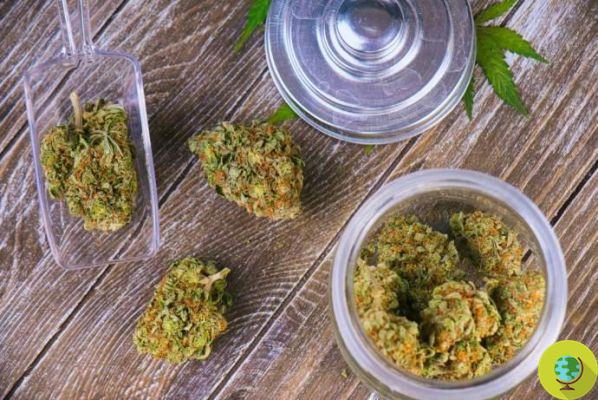For the first time, the WHO launches a review of the prohibition of cannabis.
Don't store avocado like this: it's dangerousRevision of the prohibition of cannabis: the World Health Organization announces that it wants to scientifically re-evaluate the effects of marijuana, thus profiling the possibility of removing it from the list drawn up on drugs.
This was announced by Marco Perduca, ex-radical senator and spokesman for the Luca Coscioni Association, present in recent days in Geneva during the open session of the Commission of Experts on Drug Addiction of the World Health Organization, who, therefore, for the first time in the history of the United Nations informs to start a review of the therapeutic properties of cannabis.
A debate, that on the legalization of cannabis, which is part of a true evolutionary process of which the WHO is becoming the protagonist, adapting to the historical changes of society. An example of this is the new Classification (ICD-11) published in these days, which no longer considers gender incongruity ("transsexuality") "mental disorder" and which, on the other hand, includes addiction to video games among the pathologies of the mind .
Thus, while Canada definitively legalizes marijuana, today the WHO, 70 years after its foundation, is finally starting a critical review process, that is, aimed not only at the study, but also at the formulation of operational recommendations.
Since '61 cannabis has been a prohibited plant for the purposes of scientific research and therapeutic use, such as heroin and cocaine. Since the early 70s, its products can very rarely be used for therapeutic purposes, but in the meantime, especially in the last 20 years, there has been a boom in research on production of cannabis for therapeutic purposes, where the adverse effects are a negligible percentage compared to the benefits that the use of this plant and its derivatives entails. Over time, then, European states have softened their laws and allowed the prescription of therapeutic cannabinoids.
To date, cannabis is included in the Table I. (highly additive and subject to abuse) and in the Table IV (substances included in Schedule I rarely used in medical practice) of the Single Convention on Narcotic Drugs of 1961.
A cross that complicates, as specified by the Coscioni Association - which intends to underline once and for all the scarcity of studies to prove the therapeutic properties of cannabis -, the research on the active components of the plant due to the administrative difficulties that scientists encounter in gaining access. to substances.

Currently, given the widespread medical use, the inclusion in Table IV is less justifiable than 57 years ago and the ambiguous definitions of substances related to cannabis and placed under international control, as well as the classification of its inflorescences, resins and extracts as " narcotics "and its active compounds as" psychotropic substances ". they have been "condemned" in the past by the WHO Committee of Experts and also by the international junta on drugs.
"And if the rich world can use cannabis-based therapies - says Perduca - it is not clear why the countries victims of Western prohibition cannot grow cannabis, often a traditional plant, and help their citizens just like those of the countries that, since after the war until today, they have imposed draconian laws against the production and therapeutic use of the medical plant ”.
Just to mention a few facts, it is almost impossible for a THC overdose to occur, because a 70-pound person, for example, would need to consume about 4 grams of THC, the equivalent of 260 joints at the same time, to have a 'overdose. THC can cause "conceptual disorganization, fragmented thinking, suspiciousness, paranoid and grandiose delusions and perceptual distortions", but all temporary. It is also estimated that 183 million adults used cannabis worldwide in 2015. The plant grew in 135 countries and is the most produced "drug" in the world "and, as fortherapeutic aspect, many studies have now established that the negligible percentage of adverse effects compared to the benefits that the use of this plant and its derivatives entails.
All that remains, therefore, is that the UN confronts the need to balance that famous prohibitionist “precautionary principle” with the techno-scientific innovations now adopted by the world of research and soon arrives at a final recommendation.
Read also
- Legal cannabis arrives in supermarkets
- Cannabis light, here are the rules of the Mipaaf for cultivation
Germana Carillo


























